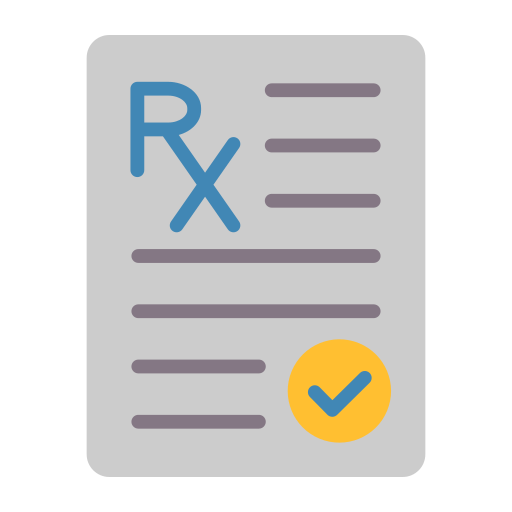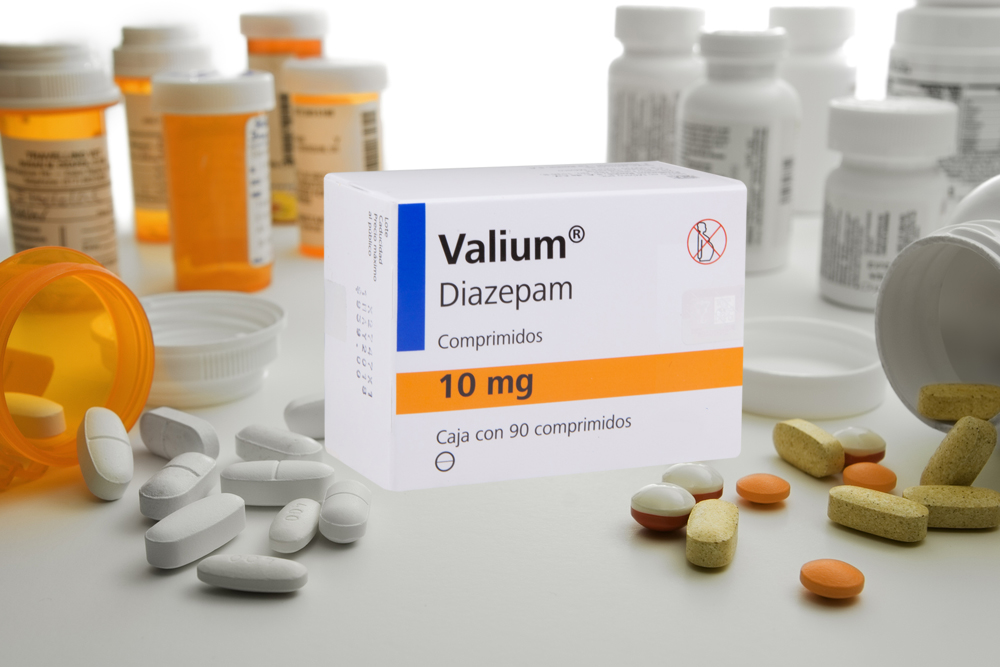Valium is a drug that exhibits anxiolytic, muscle relaxant, sedative, hypnotic, and anticonvulsant properties. The drug Valium has the following patented name - Diazepam. This drug belongs to the benzodiazepine group and is of great importance in medicine.

How to Legally Get Valium (Diazepam) Online
 |
1. Complete a Secure Online Consultation Fill out a confidential medical intake form through our HIPAA-compliant platform. Your responses are reviewed by a licensed U.S. healthcare provider who evaluates whether treatment is appropriate based on your symptoms and health history. |
 |
2. Get a Legal Prescription from a Licensed Provider If approved, the provider issues a valid prescription in accordance with U.S. telehealth regulations. Our network includes board-certified clinicians registered to prescribe medications online where permitted by law. |
 |
3. Receive FDA-Approved Medication at Your Doorstep Your prescription is sent to a certified U.S. pharmacy. The medication is then discreetly packaged and delivered directly to your home no in-person visits or pharmacy lines required. |
 |
Begin Your Treatment with Diazepam |
How to Safely Buy Valium (Diazepam) Online with Legal U.S. Prescription Approval
Under current U.S. federal guidelines, DEA-registered practitioners are allowed to prescribe Schedule IV medications, including Valium (Diazepam), via real-time telemedicine consultations, without needing an initial in-person visit so long as they comply with state and federal laws. This flexibility is part of a broader initiative extending through at least December 31, 2025, under HHS/DEA policy.
In January 2025, the DEA introduced a Special Registration framework enabling certified telemedicine providers, such as psychiatrists and hospice doctors, to legally prescribe controlled substances including Valium via secure, video-based telehealth platforms. Providers must register with the DEA, use Prescription Drug Monitoring Programs (PDMPs), and adhere to strict record keeping and anti-diversion protocols.
Although the Ryan Haight Act of 2008 generally required an in-person evaluation to prescribe controlled substances online, current DEA rules establish exceptions allowing fully compliant telemedicine prescribing of Valium. Providers must ensure a comprehensive, real-time telehealth patient assessment and meet telemedicine standards under 21 U.S.C. 802(54).
Since 2010, DEA regulations have officially sanctioned electronic prescriptions for controlled substances (EPCS). Telehealth providers prescribing Valium must utilize certified e-prescribing systems that include two-factor authentication, proper audit trails, and secure transmission to a DEA-licensed pharmacy, ensuring legal and safe access.
To safely purchase Valium via telehealth, patients must use platforms that follow federal and state telemedicine laws, maintain a provider-patient relationship, and are transparent about DEA registration, licensure, and PDMP usage. Any service offering Valium without these safeguards is likely non-compliant and potentially unsafe.
Features of the Valium
What is remarkable about such a tool as Valium (Diazepam)? The action (central muscle relaxant) of this drug is due to the slowing down of polysynaptic reflexes in the spinal cord. Taking this drug leads to a decrease in blood pressure, expansion of the coronary vessels, as well as an increase in the resistance of the brain to hypoxia, and an increase in the pain threshold of sensitivity.
Indications
For what diseases can a patient be prescribed Valium? Reviews of experts report that this drug is indicated for admission under the following conditions:
- spasms of the skeletal muscles with local injuries;
- anxiety disorders;
- myositis, arthritis, bursitis, rheumatic pelvis-spondyloarthritis, progressive chronic polyarthritis;
- tetanus;
- arterial hypertension, dysphoria, gastric and duodenal ulcer (as an additional remedy), myocardial infarction;
- insomnia;
- angina;
- spastic conditions, including cerebral palsy, arthrosis with skeletal muscle tension, and athetosis;
- drug poisoning;
- vertebral syndrome;
- alcohol withdrawal syndrome with such manifestations as anxiety, tension, agitation, tremor;
- epileptic status, relief of epileptic seizures;
- psychosomatic disorders in gynecology and obstetrics (for example, menopausal and menstrual disorders, with preeclampsia, to facilitate labor activity);
- eczema and other diseases that are accompanied by irritability and itching;
- Meniere's disease;
- paranoid-hallucinatory states, motor excitations of various origins (in psychiatry and neurology);
- general anesthesia and premedication (for example, before surgery and endoscopic manipulations).
Contraindications
When should you not use a drug like Valium? The effect of such a drug will not be the same as we would like if it is taken:
- with hypersensitivity;
- coma, shock;
- acute alcohol intoxication;
- acute forms of kidney and liver diseases;
- myasthenia gravis;
- angle-closure glaucoma;
- in childhood up to 6 months;
- during breastfeeding and in the first trimester of pregnancy.
Valium (Diazepam): Instructions for Use
Only an experienced specialist should prescribe the agent in question. For an adult patient, the oral dose of the drug should be 5-20 mg per day. This amount of medication is determined depending on the severity of the symptoms of the disease, as well as on the overall clinical picture.
The maximum possible single dose of the drug is not more than 10 mg. The course of therapy with this remedy in case of anxiety should last about 6 weeks. After the specified period, you should contact your doctor to select the minimum maintenance dosage.
The abolition of the drug in question is carried out gradually.
In urgent cases, this medication should be administered parenterally (intramuscularly or intravenously). In this case, a dose of 2-20 mg is used.
With intravenous infusion, the drug should be administered very slowly, at a rate not exceeding 0.5-1 ml per minute.
Side Effects
Like any medicine, taking the drug in question can cause negative reactions. These include the following:
- bradycardia or hypotension;
- decreased concentration and reaction speed;
- drug addiction;
- dizziness and headache;
- the development of paradoxical reactions in the form of anxiety, insomnia, hallucinations, and convulsions;
- memory impairment (short-term);
- adverse reactions at the injection site;
- movement disorders in the form of dysarthria and ataxia;
- damage to the kidneys and liver, intestinal atony, decreased libido and potency (with prolonged use of the drug);
- allergic reactions;
- withdrawal syndrome;
- decreased performance and muscle weakness.
When prescribing Valium (Diazepam), it is very important for the patient to inform him about what this drug is. After all, the agent in question is a well-known psychotropic tranquilizer, which has a number of negative effects, among which addiction and withdrawal syndrome are especially distinguished.
The doctor who prescribes this medicine is obliged to inform the patient about the possible harmful effects of the drug on his body, as well as to suggest other treatment options.
Frequently Asked Questions



